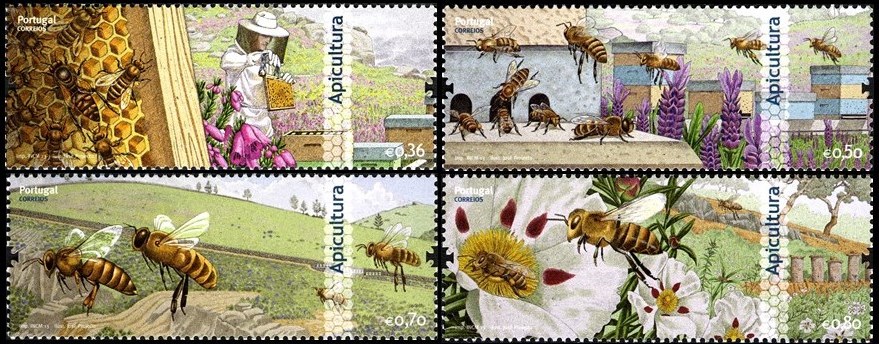Beekeepers across the US lost four in 10 of their honeybee colonies over the past year, as the worst winter on record for tracked bee populations raised fresh concerns over the plight of the crucial pollinators. Over the past winter, 37% of honeybee colonies were lost to beekeepers, the worst winter decline recorded in the 13-year history of a nationwide survey aimed at charting bees’ fortunes. Overall, 40% of colonies died off over the entire year to April, which is above the 38% average since the survey began.
Researchers said the numbers were concerning given the intensive efforts to stem the loss of honeybees, which pollinate an estimated $15bn in US crops each year, enabling the farming of foods including apples, melons, cherries, almonds and blueberries. Alarm over honeybee numbers has grown since 2006, when a phenomenon called colony collapse disorder became widely known. This problem, in which the majority of worker bees abandon the colony, has since receded but beekeepers are now faced with more general die-offs linked to disease, pesticide use and habitat loss.
“It’s disconcerting that we’re still seeing elevated losses after over a decade of survey and quite intense work to try to understand and reduce colony loss,” said Geoffrey Williams, assistant professor of entomology at Auburn University.
Source: The Guardian, 19 June 2019
https://www.theguardian.com/environment/2019/jun/19/us-beekeepers-lost-…

- Login om te reageren
